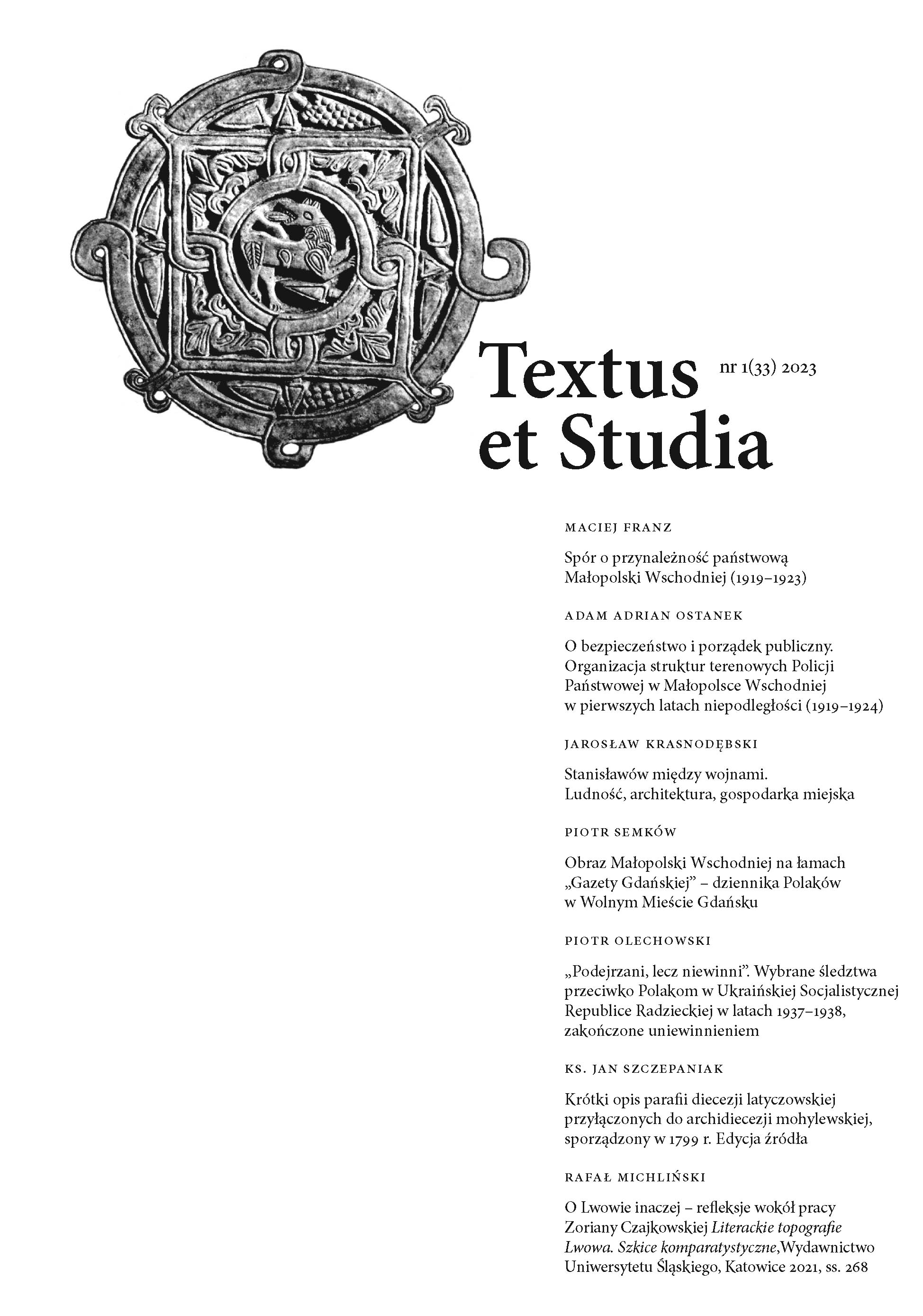On Lviv in a different way – reflections on Zoriana Czajkowska’s work, Literackie topografie Lwowa. Szkice komparatystyczne, Wydawnictwo Uniwersytetu Śląskiego, Katowice 2021, pp. 268
DOI:
https://doi.org/10.15633/tes.09107Keywords:
Lviv, literature, literary topographyAbstract
The history of Lviv, especially in the twentieth century, has caused Poles, Ukrainians, and also Russians to speak of the city as “theirs”. The national changes that occurred in Lviv as a result of World War II: the forced exodus of Poles (and the perpetuation of the myth of the city as Semper Fidelis), the Sovietisation of the city, and the subsequent incorporation of the city into the independent Ukrainian state, were all reflected in the work of writers of all three nationalities. The purpose of this article is to discuss Zoriana Tchaikovska’s work Literary Topographies of Lviv. Comparative sketches.
References
Bajcar A., Mój Lwów [w:] Europa nieprowincjonalna. Przemiany na ziemiach wschodnich dawnej Rzeczypospolitej (Białoruś, Litwa, Łotwa, Ukraina, wschodnie pogranicze III Rzeczypospolitej Polskiej) w latach 1772–1999, K. Jasiewicz (red.), Warszawa 1999, s. 345–362.
Czajkowska Z., Literackie topografie Lwowa. Szkice komparatystyczne, Katowice 2021.
Kolasa W.M., Lwów i Kresy Południowo-Wschodnie. Bibliografia druków zwartych wydanych w Polsce w latach 1979–2001 [w:] Kraków–Lwów: książki, czasopisma, biblioteki XIX i XX wieku, t. 6, cz. 2, J. Jarowiecki (red.), Kraków 2003, s. 303–349.
Markowski D., Anatomia strachu. Sowietyzacja obwodu lwowskiego 1944–1953. Studium zmian polityczno-gospodarczych, Warszawa 2018, s. 474–489.
Olechowski P., Życie profesora Juliusza Makarewicza w powojennym Lwowie (1945–1955), „Rocznik Kresowy”, 6/8 (2020), z. 2, s. 179–216.
Downloads
Published
Issue
Section
License

This work is licensed under a Creative Commons Attribution 4.0 International License.
Authors who publish with this journal agree to the following terms:
- Authors retain the copyright and full publishing rights without restrictions, and grant the journal right of first publication with the work simultaneously licensed under a Creative Commons Attribution 4.0 International License that allows others to share the work with an acknowledgement of the work's authorship and initial publication in this journal.
- Authors are able to enter into separate, additional contractual arrangements for the non-exclusive distribution of the journal's published version of the work (e.g., post it to an institutional repository or publish it in a book), with an acknowledgement of its initial publication in this journal.
- Authors are permitted and encouraged to post their work online (e.g., in institutional repositories or on their website) prior to and during the submission process, as it can lead to productive exchanges, as well as earlier and greater citation of published work (See The Effect of Open Access).

